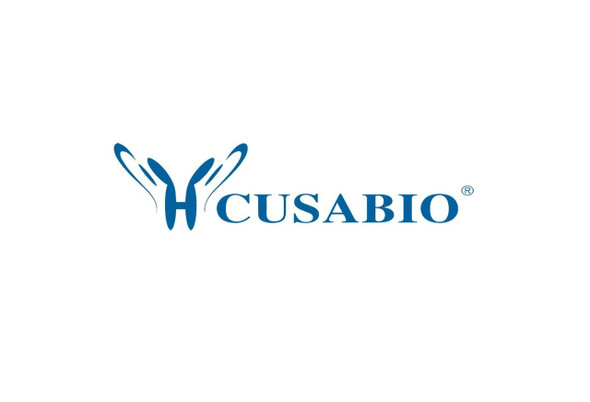Cusabio Human Recombinants
Recombinant Human Bifunctional heparan sulfate N-deacetylase/N-sulfotransferase 1 (NDST1), partial | CSB-EP015614HU
- SKU:
- CSB-EP015614HU
- Availability:
- 3 - 7 Working Days
Description
Recombinant Human Bifunctional heparan sulfate N-deacetylase/N-sulfotransferase 1 (NDST1), partial | CSB-EP015614HU | Cusabio
Alternative Name(s): Glucosaminyl N-deacetylase/N-sulfotransferase 1 ;NDST-1N-heparan sulfate sulfotransferase 1 ;N-HSST 1[Heparan sulfate]-glucosamine N-sulfotransferase 1 ;HSNST 1 2 domains:Heparan sulfate N-deacetylase 1 (EC:3.-.-.-)Heparan sulfate N-sulfotransferase 1 (EC:2.8.2.-)
Gene Names: NDST1
Research Areas: Immunology
Organism: Homo sapiens (Human)
AA Sequence: GWKRGLEPSADAPEPDCGDPPPVAPSRLLPLKPVQAATPSRTDPLVLVFVESLYSQLGQEVVAILESSRFKYRTEIAPGKGDMPTLTDKGRGRFALIIYENILKYVNLDAWNRELLDKYCVAYGVGIIGFFKANENSLLSAQLKGFPLFLHSNLGLKDCSINPKSPLLYVTRPSEVEKGVLPGEDWTVFQSNHSTYEPVLLAKTRSSESIPHLGADAGLHAALHATVVQDLGLHDGIQRVLFGNNLNFWLHKLVFVDAVAFLTGKRLSLPLDRYILVDIDDIFVGKEGTRMKVEDVKALFDTQNELRAHIPNFTFNLGYSGKFFHTGTNAEDAGDDLLLSYVKEFWWFPHMWSHMQPHLFHNQSVLAEQMALNKKFAVEHGIPTDMGYAVAPHHSGVYPVHVQLYEAWKQVWSIRVTSTEEYPHLKPARYRRGFIHNGIMVLPRQTCGLFTHTIFYNEYPGGSSELDKIINGGELFLTVLLNPVSAPQPMAAGEKGLLHSLSAADTGFLEPGKGGEA
Source: E.coli
Tag Info: N-terminal 6xHis-SUMO-tagged
Expression Region: 40-556aa
Sequence Info: Partial of Isoform 2
MW: 73.5 kDa
Purity: Greater than 90% as determined by SDS-PAGE.
Relevance: Essential bifunctional enzyme that catalyzes both the N-deacetylation and the N-sulfation of glucosamine (GlcNAc) of the glycosaminoglycan in heparan sulfate. Modifies the GlcNAc-GlcA disaccharide repeating sugar backbone to make N-sulfated heparosan, a prerequisite substrate for later modifications in heparin biosynthesis. Plays a role in determining the extent and pattern of sulfation of heparan sulfate. Compared to other NDST enzymes, its presence is absolutely required. Participates in biosynthesis of heparan sulfate that can ultimately serve as L-selectin ligands, thereby playing a role in inflammatory response.
Reference: NDST1 missense mutations in autosomal recessive intellectual disability.Reuter M.S., Musante L., Hu H., Diederich S., Sticht H., Ekici A.B., Uebe S., Wienker T.F., Bartsch O., Zechner U., Oppitz C., Keleman K., Jamra R.A., Najmabadi H., Schweiger S., Reis A., Kahrizi K.Am. J. Med. Genet. A 164A:2753-2763(2014)
Storage: The shelf life is related to many factors, storage state, buffer ingredients, storage temperature and the stability of the protein itself. Generally, the shelf life of liquid form is 6 months at -20?/-80?. The shelf life of lyophilized form is 12 months at -20?/-80?.
Notes: Repeated freezing and thawing is not recommended. Store working aliquots at 4? for up to one week.
Function: Essential bifunctional enzyme that catalyzes both the N-deacetylation and the N-sulfation of glucosamine (GlcNAc) of the glycosaminoglycan in heparan sulfate. Modifies the GlcNAc-GlcA disaccharide repeating sugar backbone to make N-sulfated heparosan, a prerequisite substrate for later modifications in heparin biosynthesis
Involvement in disease: Mental retardation, autosomal recessive 46 (MRT46)
Subcellular Location: Golgi apparatus membrane, Single-pass type II membrane protein
Protein Families: Sulfotransferase 1 family, NDST subfamily
Tissue Specificity: Widely expressed. Expression is most abundant in heart, liver and pancreas.
Paythway:
Form: Liquid or Lyophilized powder
Buffer: If the delivery form is liquid, the default storage buffer is Tris/PBS-based buffer, 5%-50% glycerol. If the delivery form is lyophilized powder, the buffer before lyophilization is Tris/PBS-based buffer, 6% Trehalose, pH 8.0.
Reconstitution: We recommend that this vial be briefly centrifuged prior to opening to bring the contents to the bottom. Please reconstitute protein in deionized sterile water to a concentration of 0.1-1.0 mg/mL.We recommend to add 5-50% of glycerol (final concentration) and aliquot for long-term storage at -20?/-80?. Our default final concentration of glycerol is 50%. Customers could use it as reference.
Uniprot ID: P52848
HGNC Database Link: HGNC
UniGene Database Link: UniGene
KEGG Database Link: KEGG
STRING Database Link: STRING
OMIM Database Link: OMIM









